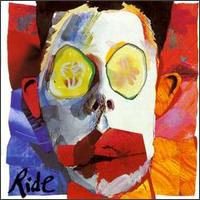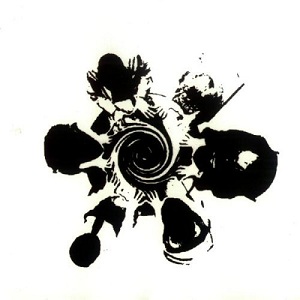Shoegaze is a subgenre of indie and alternative rock characterized by its ethereal mixture of obscured vocals, guitar distortion and effects, feedback, and overwhelming volume. It emerged in Ireland and the United Kingdom in the late 1980s among neo-psychedelic groups who usually stood motionless during live performances in a detached, non-confrontational state. The name comes from the heavy use of effects pedals, as the performers were often looking down at their pedals during concerts.

Head over Heels is the second studio album by Scottish alternative rock band Cocteau Twins. The album was released on 24 October 1983 through the label 4AD. It featured the band's signature sound of "Guthrie's lush guitars under Fraser's mostly wordless vocals" and is considered an archetype of early ethereal wave music.

Bardo Pond are an American psychedelic rock band formed in 1991, and who are currently signed to London-based label Fire Records. The current members are Michael Gibbons (guitar), John Gibbons (guitar), Isobel Sollenberger, Clint Takeda and Jason Kourkounis (drums). Bardo Pond's music is often classified as space rock, acid rock, post-rock, shoegazing, noise or psychedelic rock. Some Bardo Pond album titles have been derived from the names of esoteric psychedelic substances. Their sound has been likened to Pink Floyd, Spacemen 3 and My Bloody Valentine amongst others.

Going Blank Again is the second studio album by English rock band Ride, released on 9 March 1992 on Creation Records. It was produced by Alan Moulder, and peaked at No. 5 in the UK Albums Chart. In October 2009 the album was certified gold by the British Phonographic Industry for sales of over 100,000 units.

Bowery Electric was an American post-rock band, formed by Lawrence Chandler and Martha Schwendener in 1993.

Methodrone is the debut studio album by American psychedelic rock band The Brian Jonestown Massacre, released in 1995 by record label Bomp!.

Pygmalion is the third studio album by English rock band Slowdive, released on 6 February 1995 by Creation Records. It was the group's final album before their reformation in 2014, and their only album with Ian McCutcheon, who had replaced Simon Scott on drums.

Bufo Alvarius, also known as Bufo Alvarius, Amen 29:15, is the debut studio album by Bardo Pond, released in 1995 by Drunken Fish Records. It takes its name from the toad whose skin contains the psychoactive substance 5-MeO-DMT.

Lapsed was the third album by Bardo Pond. It was released on October 21, 1997, on Matador Records.

Set and Setting is the fourth album by the American psychedelic rock group Bardo Pond. It was released on August 10, 1999 on Matador Records. The album's title comes from the writings of Timothy Leary.

Dilate is the fifth studio album by Bardo Pond. It was released on April 24, 2001, on Matador Records.

On the Ellipse is the sixth album by Bardo Pond and first for ATP Recordings. It was released on July 8, 2003.

Ticket Crystals is the seventh studio album by Bardo Pond. It was released on June 6, 2006. The album features a cover of The Beatles' song "Cry Baby Cry".

69 is the debut album by British band A.R. Kane, released in 1988 on Rough Trade Records and produced by the band with additional co-production from Ray Shulman. Following the release of their acclaimed Lollita and Up Home! EPs, 69 developed the experimental "dream pop" style pioneered by the duo, blending elements of dub, acid rock, jazz, noise, and pop.

Hash Jar Tempo is a collaborative musical project between the members of Philadelphia-based psychedelic band Bardo Pond and experimental guitarist and composer Roy Montgomery. The band was founded in March 1995 and have released two albums, Well Oiled and Under Glass, and have never toured.

Well Oiled is the first recorded collaboration between Bardo Pond and Roy Montgomery, released under the name Hash Jar Tempo on March 17, 1997 by Drunken Fish Records.

Under Glass is the second studio album by Hash Jar Tempo, released on March 23, 1999 by Drunken Fish Records.

Bardo Pond is the 8th studio album by Bardo Pond, released in 2010.

Pipe Dreams is the debut studio album by alternative rock band Whirr, released on March 13, 2012 by Tee Pee Records. The album served as a follow-up to Distressor, the bands critically acclaimed debut EP.


















